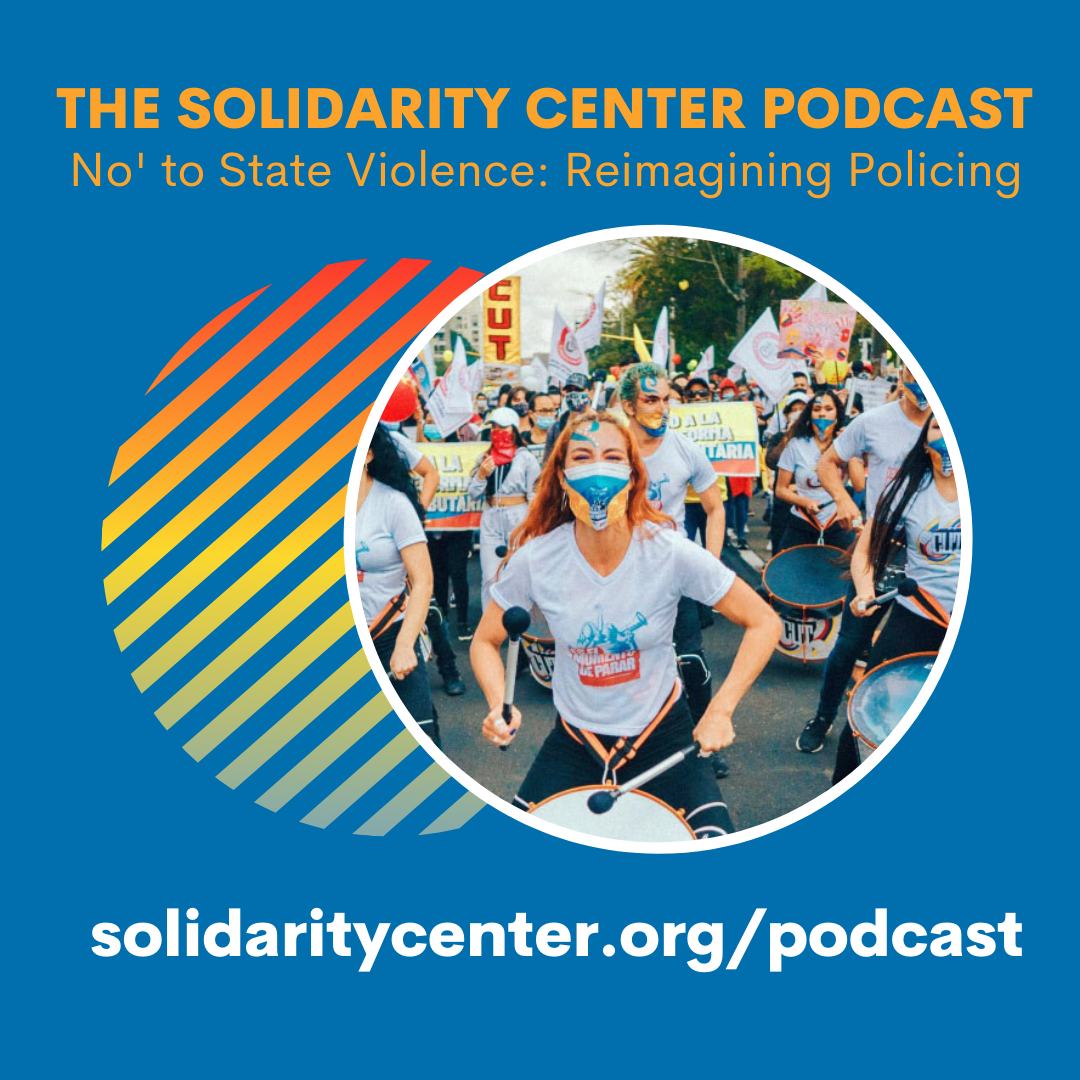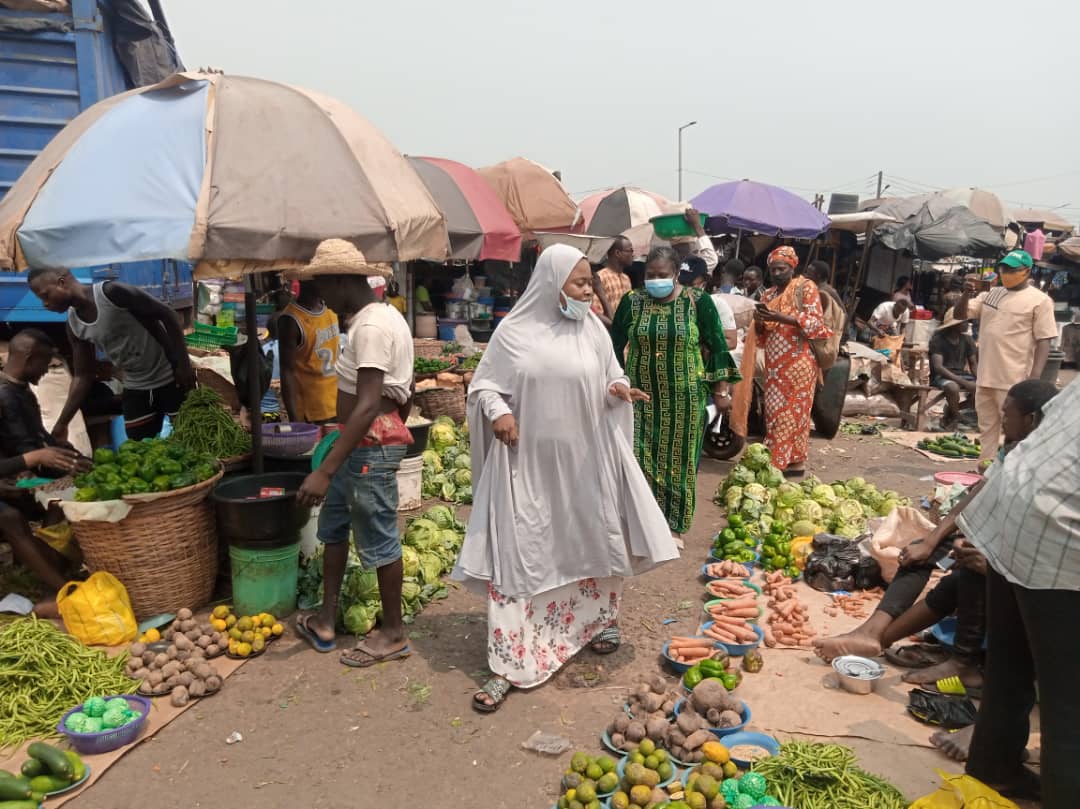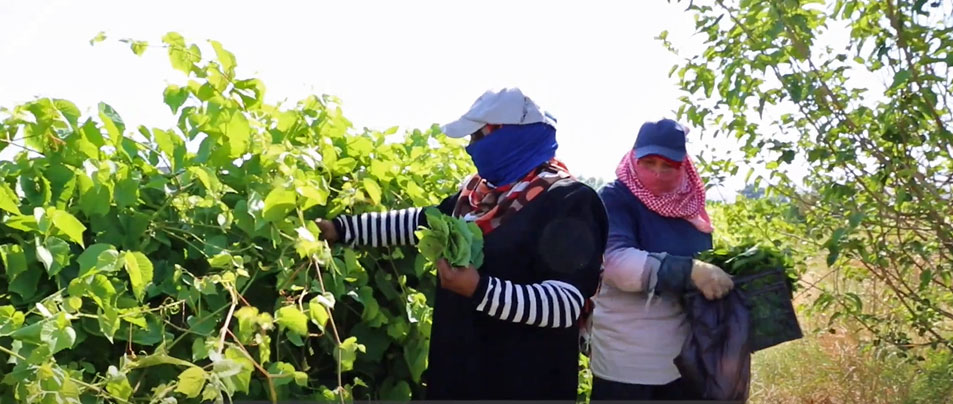Police violence, which escalated during COVID-19, is part of a rising tide of global crackdowns targeting marginalized communities, workers and young people struggling to support themselves. The latest episode of The Solidarity Center Podcast looks at how workers in...
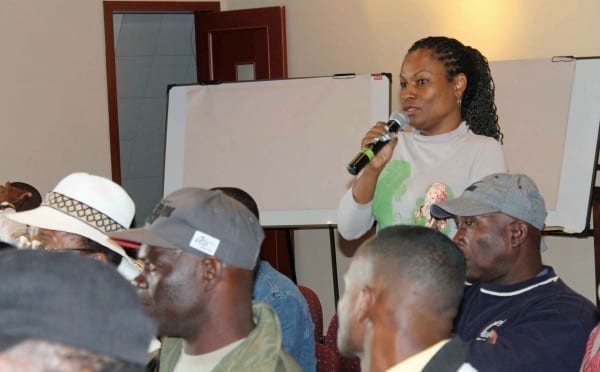
The Solidarity Center supported the development of the Afro-Colombian Labor Council, the first national organization in Colombia dedicated to improving the working conditions of Afro-descendants. Credit: Solidarity Center/Rhett Doumitt
The Solidarity Center engages with unions and their allies through an analysis and practice of equality, radical inclusion and intersectionality that is explicitly feminist, anti-racist, pro-equality, pro-worker, pro-migrant and class conscious.
The Solidarity Center designs and implements strategies to confront the multiple and intersecting forms of oppression that contribute to economic structures in which women and other groups of workers are devalued and excluded from economic and social equality. This requires a conscious effort to examine how oppressive forces play out throughout the global labor movement with a commitment to dismantle these systems. Explicit in this work is the understanding that the agency and leadership of the most marginalized workers are key components of decent work and economic justice for all.
The Solidarity Center has assisted unions and their allies in countries such as Cambodia, Colombia, Georgia, Honduras, Indonesia, Kyrgyzstan, Morocco, Nigeria, Nicaragua, South Africa and Tunisia to ensure meaningful participation of historically excluded and marginalized workers in unions and other democratic structures.
See related factsheets, videos and reports.
In Morocco, the Solidarity Center supported a multi-year effort to build women worker power and gender equality which led to the inclusion of women workers during negotiations for the first collective bargaining agreement in the informal agriculture sector. In Colombia, the Solidarity Center supported the development of the first national organization dedicated to improving the working conditions of Afro-Colombians.
In Kyrgyzstan, Morocco and Tunisia, Solidarity Center is assisting in strengthening union efforts to promote inclusion of individuals with disabilities. In Nicaragua, Solidarity Center supports domestic workers as they address inclusion of LGBTQI union members to ensure they can represent themselves, articulate their priorities and increase their leadership opportunities and visibility.
The Solidarity Center:
- Conducts research and awareness-raising to challenge systems of oppression and inform inclusive approaches to building worker power across social identities at all levels
- Supports representative, inclusive leadership in our partner organizations
- Engages in cross-movement work to combat tools of oppression that impact women, including gender-based violence and harassment at work
- Brings together unions and community groups to identify shared socioeconomic struggles, analyzes how those struggles are linked to systemic racism and implements organizing, legal and advocacy strategies to collectively overcome the oppression that entraps workers in poverty
- Advocates for economic policies that uproot systemic discrimination and exploitation in labor markets.
Nigerian Market Vendors Act to End Gender Violence
A magistrate court in Nigeria this week recommended prosecution of a man accused of sexually assaulting a minor in a bustling Lagos open marketplace—and gender rights activists there say the move was the direct result of awareness training conducted with market...
Jordan Agricultural Workers Win Landmark Rights
بالعربية Agricultural workers in Jordan for the first time have fundamental protections on the job, including guarantees for safe and decent working conditions, following a two-year campaign by the Agricultural Workers Union in Jordan and its allies that resulted in...
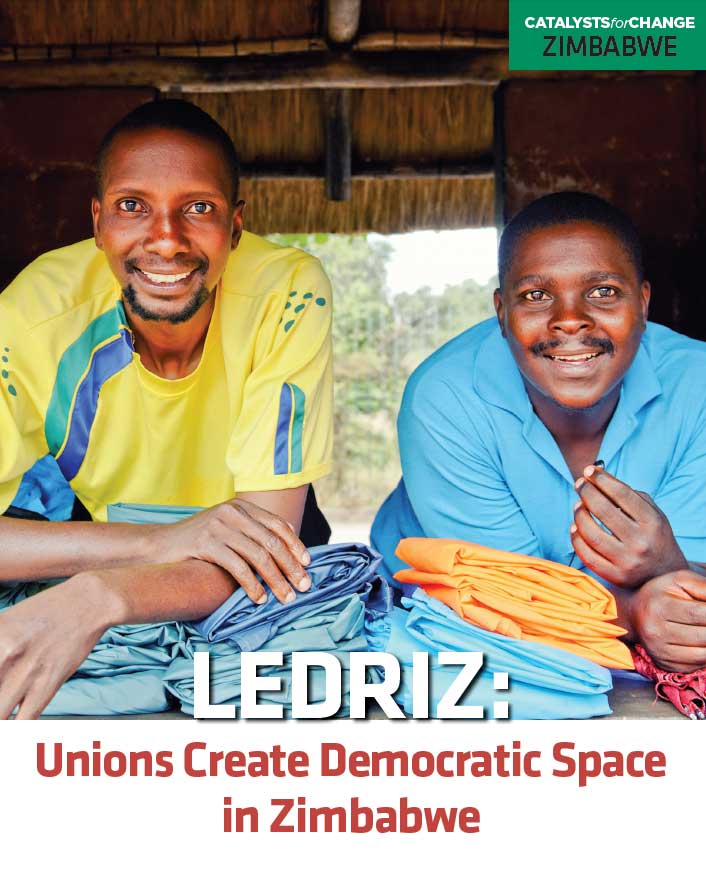
Unions Create Democratic Space in Zimbabwe (2013)
Unions in Zimbabwe are ensuring the concerns of working people are heard—while highlighting issues feeding into the nation's poverty crisis, a Solidarity Center report finds. English (PDF) Arabic (PDF) French (PDF) Spanish (PDF) Sources
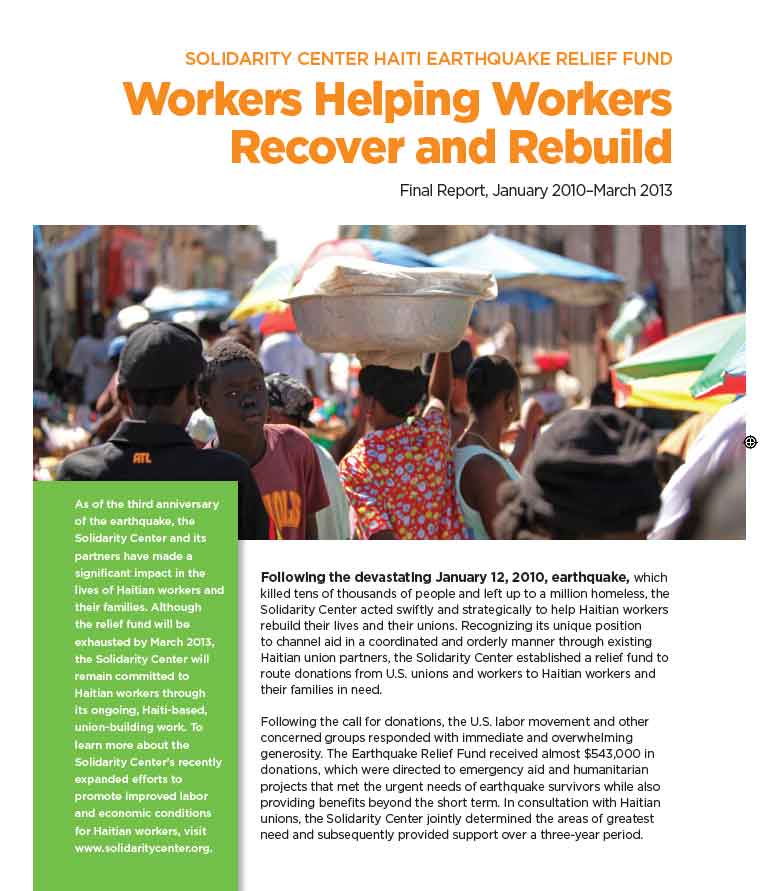
Solidarity Center Haiti Earthquake Relief Fund: Workers Helping Workers Recover and Rebuild. Final Report, January 2010-March 2013
Following the devastating January 12, 2010, earthquake in Haiti, the Solidarity Center established a relief fund to route donations from U.S. unions and workers to Haitian workers and their families in need. The final report on these efforts, released on the third...
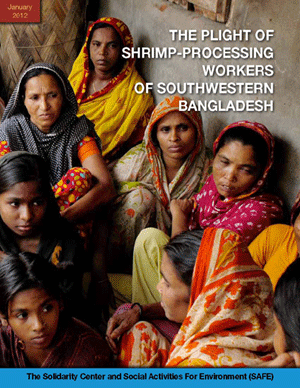
The Plight of Shrimp-Processing Workers of Southwestern Bangladesh (2012)
Bangladesh’s labor code addresses pay, working hours, and on-the-job conditions. However, in the shrimp-processing industry, the code is not being adequately enforced. Bangladeshi shrimp-processing workers—the majority of whom are women—still face inadequate health...
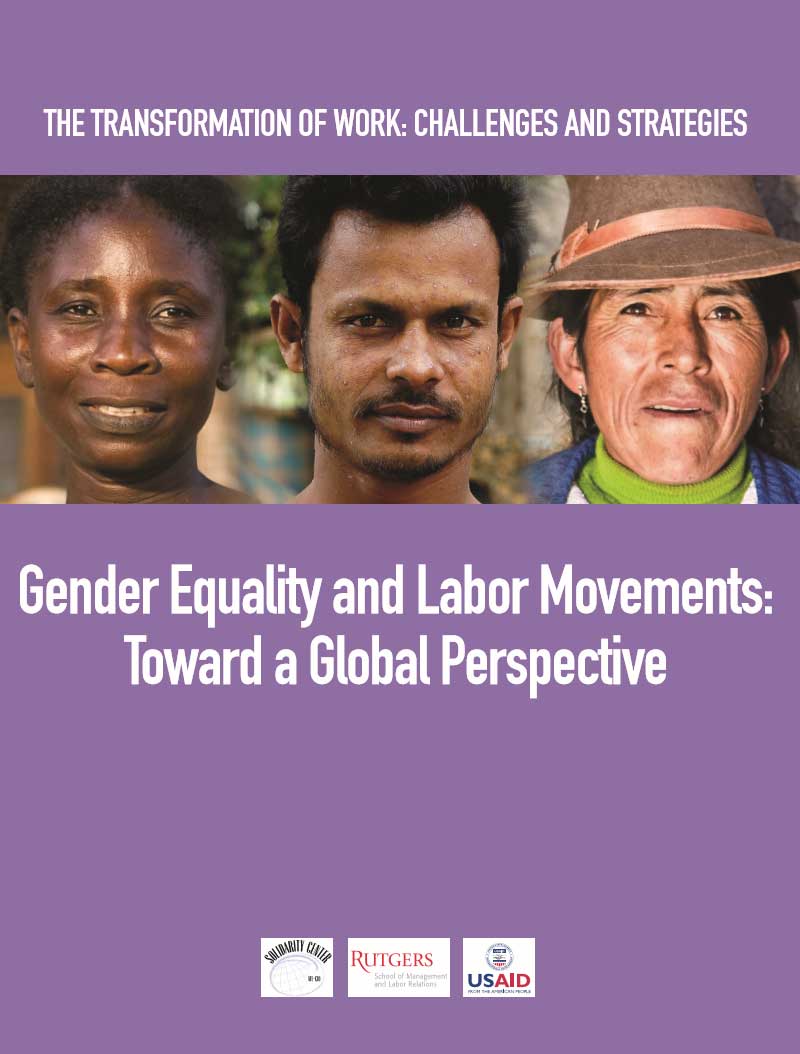
Gender Equality and Labor Movements: Toward a Global Perspective (Rutgers, 2012)
A critical review of the English-language research on gender equality and labor movements highlighting “best practice” case studies around the world most relevant to those engaged in building democratic and humane societies. This Solidarity Center report is part of a...
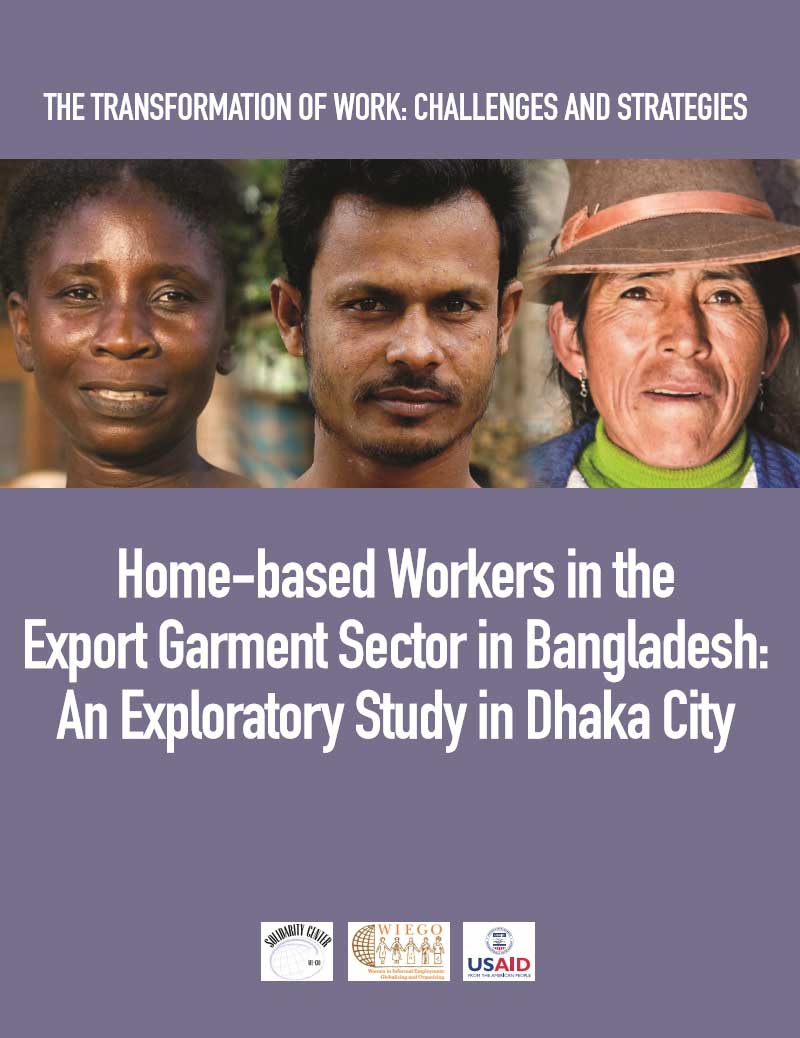
Home-based Workers in the Export Garment Sector in Bangladesh: An Exploratory Study in Dhaka City (Wiego, 2012)
Workers in the home-based export garment sector remain an invisible segment of the labor market, and this report is first step toward a systematic documentation of this phenomenon, with special emphasis on employment conditions, worker livelihoods and issues affecting...
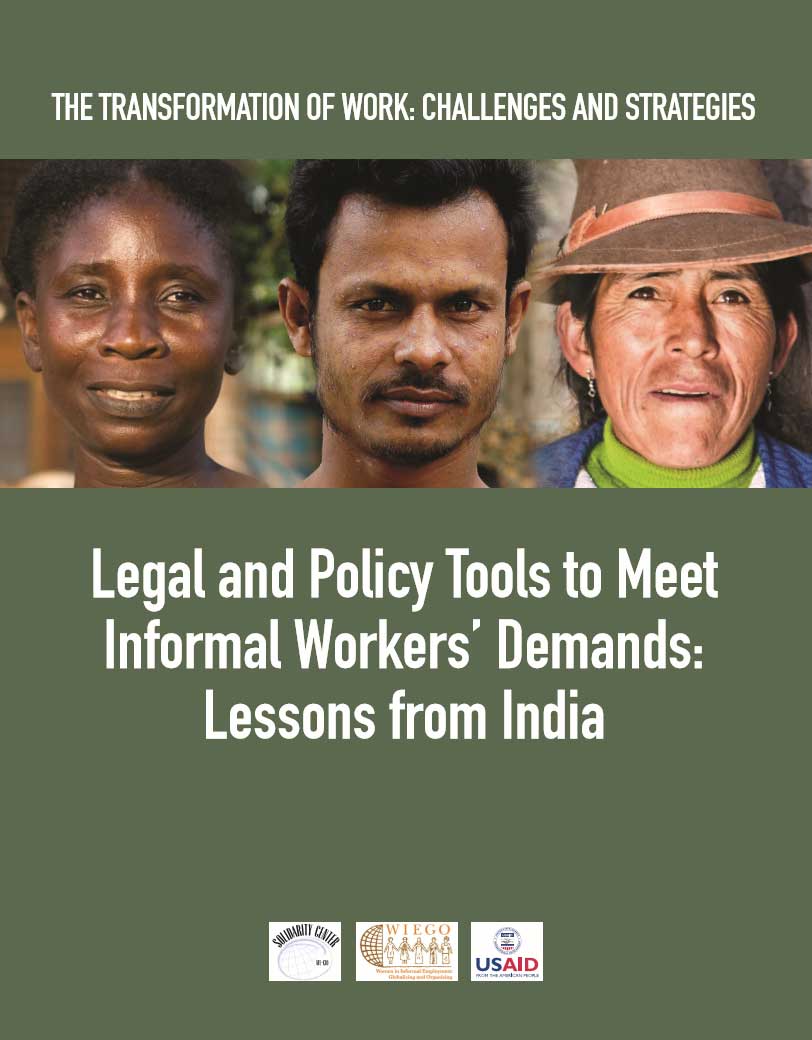
Legal and Policy Tools to Meet Informal Workers’ Demands: Lessons from India (WIEGO, 2012)
This report highlights key lessons from a WIEGO pilot project in India examining the nature of the informal economy and the way legal and policy tools can address the concerns of those working in the informal economy. This Solidarity Center report is part of a...

